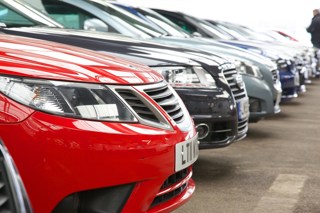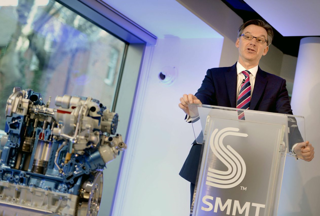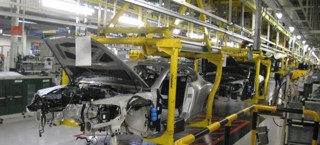A 13.7% decline in the number of cars being manufactured in the UK in June has caused the SMMT to revise its target of producing two million cars a year by H2 of 2020.
Last month saw 136,901 cars leave UK production lines in a monthly performance which means overall volumes for the first half of 2017 is down 2.9% year-to-date to 866,656 units.
Domestic demand for British built cars fell 9.5%, the SMMT said today, with exports having driven volumes in first six months as 78.9% of British-built cars were shipped overseas, maintaining year-on-year demand broadly stable at -0.9%.

Mike Hawes, SMMT chief executive, blamed “Brexit uncertainty” for the disappointing June result, stating that it was “not helping investment and growth is stalling”.
Hawes added: “The government has been in ‘listening’ mode but now it must put on the table the concrete plans that will assure the future competitiveness of the sector.
“Investors need certainty so, at the very least, the UK must seek an interim deal which maintains single market and customs union membership until we have in place the complex new agreement sought with the EU.”
The SMMT said that production was forecast to rally in the second half of 2017, according to the latest independent forecast.
The projection is based on new models and updates planned for production later this year.
However, market softness both in the UK and certain key export markets may see the 2017 forecast revised, it said.

Commenting on the SMMT’s production results, Stuart Apperley, director and head of UK automotive at Lloyds Bank Commercial Banking, said: “The outlook for UK car production isn’t too rosy in the months ahead.
“Consumer demand slowed in Europe in June, and continues to fall in the UK and the USA. To some extent this is a natural correction coming off the back of a few record-breaking years for car sales.
“But the growing popularity of electric vehicles set against the drop-off in diesel sales, as well as the uncertainty surrounding Brexit negotiations are added complications for UK manufacturers.
“Though BMW’s decision to manufacture the new electric Mini in the UK is also undoubtedly good news, other investment decisions are being delayed as a result of the uncertainty caused by Brexit.
“It is just much harder for companies to say yes when there are too many unknowns. In a period of such rapid technological change in the industry, this is a real issue for the UK car industry.”


















Login to comment
Comments
No comments have been made yet.